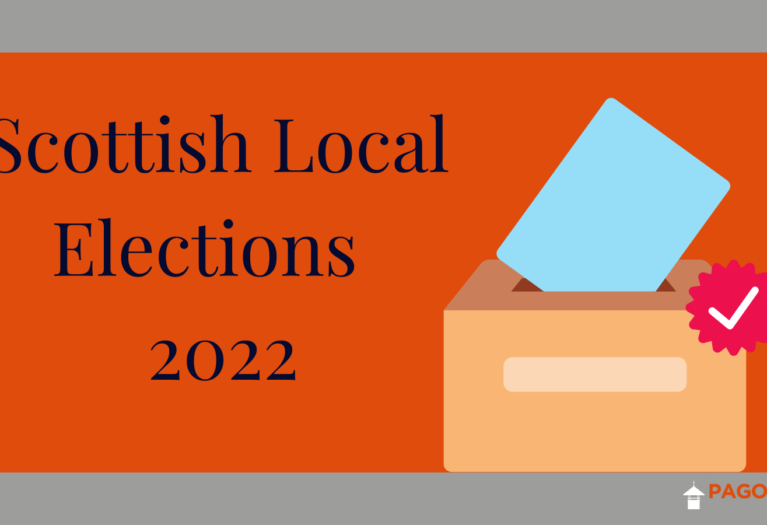Next Thursday, voters across Scotland will head to the polls again to vote in a new set of councillors in the 2022 Local Government Elections. Over 1,000 seats are up for grabs across 32 different councils, with councilors elected using the proportional Single Transferrable Vote (STV) which almost ensures that no one party is likely to gain a majority of seats on any council.
These seats were last contested in May 2017 and since then we have seen two General Elections, one Scottish Parliament Election, a new Prime Minister, two new Scottish Conservative and Scottish Labour leaders, and a plethora of political intrigue thrown in for good measure. Because of this turmoil, the 2022 local elections offer an opportunity to monitor the political weather in Scotland and assess the relative positions of the various parties.
In 2017, the SNP were returned as the largest party in local government with a significant lead over their nearest rivals, albeit with a slight drop in seats from 2012. The Scottish Conservatives, under the leadership of Ruth Davidson, more than doubled their number of councilors to supplant Scottish Labour as the second force in local government across Scotland. Kezia Dugdale oversaw an eleven-point swing away from Scottish Labour with their number of councilors falling to a record low, and Willie Rennie failed to reverse the decline of the Scottish Liberal Democrats.
Due to the electoral system used, no party won overall control of any councils. Perhaps the most significant result of the 2017 local elections was Scottish Labour losing control of Glasgow City Council to the SNP – being emblematic of the parties declining support amongst its traditional heartlands. The Scottish Conservatives also became the largest party on Aberdeenshire Council, reflecting the increasing strength of the Conservatives in rural Scottish communities – particularly in the North East.
Despite riding high following a fourth successive victory in last year’s Scottish Parliament elections, Nicola Sturgeon’s SNP is facing criticism from more feverish supporters of independence that her party has not been strong enough in advancing their cause (see Alex Salmond’s Alba Party), and from more moderate voters on the state of Scotland’s public services. If the SNP retain, or even increase, their number of councilors then Sturgeon’s leadership will be bolstered and she will feel more confident to chart her own course through the next parliamentary term.
A key race to watch will be Glasgow City Council. The SNP’s stewardship of Glasgow has been somewhat controversial, with council leader Susan Aitken facing a series of strikes from public sector workers and criticism about the cleanliness and appearance of Glasgow’s streets. Scottish Labour would see becoming Glasgow’s largest party as an indicator that Anas Sarwar’s approach of minimising the issue of independence and focusing on ‘bread and butter’ political issues offers a pathway to electoral success, and that the party is once again able to battle with the SNP in communities across Scotland.
Douglas Ross faces the challenge of following the impressive performance of Ruth Davidson in 2017. If the Scottish Conservatives manage to hold onto the bulk of their seats, this will indicate that the Conservatives’ position as Scotland’s second party is based on solid foundations. If they fall behind Scottish Labour it will show that Ross has been unable to mitigate the impacts of Boris Johnson’s unpopularity in Scotland, and indicate difficulty for the party going forward.
The local elections also pose an interesting challenge for the Scottish Greens and whether their formal relationship with the SNP-led Scottish Government will have any impact (good or bad) on their success in next week’s poll. The Greens will certainly be looking to build on their success and relative popularity in places such as Edinburgh.
Regardless of the wider implications of the local elections, these elections will see an entire new set of councilors being elected, and the composition of local government administrations across Scotland will no doubt change. This creates new opportunities for engagement with Councillors and fresh thinking across Scotland’s local authorities. From developers to those working in the third sector, many will be excited by the new opportunities that refreshed local authorities can bring and Pagoda will continue to support our clients navigate this new landscape.
To find out more about our Public Affairs service, visit our website: www.pagodapr.com/practice-areas/public-affairs

